Jarrett Bell, USA TODAY Published 6:20 p.m. ET May 22, 2019 | Updated 7:50 p.m. ET May 22, 2019
KEY BISCAYNE, Fla. — Don’t hold your breath if you’re thinking the NFL is on the brink of giving players the green light to smoke their pain away with marijuana.
Go ahead, exhale. This is still going to take a while.
Sure, the league has put a progressive foot forward in striking an agreement this week with the NFL Players Association in the name of holistic health and wellness. There’s a joint committee coming — not joint as in blunt, but joint in that medical experts will be appointed by the league and union — that is charged to study data on several alternative methods of pain management and make recommendations.
In other words, this will be a slow roll.
In the meantime, it’s status quo for players who use marijuana or other Cannabis-laced products to help deal with the physical costs of playing a brutal sport that is often compared to weekly car crashes: Pass your offseason drug test, and you’re effectively cleared to puff during the season.
And it’s status quo for the NFL’s drug policy. Marijuana is still a banned substance.
How weird. There are 33 states and the District of Columbia that legally allow the use of marijuana in some form for medical (and, in many cases, recreational) purposes, but a pro football player with a broken-up body has to work around the NFL’s policy if desiring such a pain-management measure.
It’s striking that despite the increasing acceptance of marijuana as a healing aid, Commissioner Roger Goodell on Wednesday maintained, “It’s much broader than that.”
NFL draft sites: Cleveland to hold 2021 draft, while Kansas City will host event in 2023
NFL TV changes: League tweaks several rules for 2019, including elimination of single-headers
I wouldn’t be surprised if this lingers to become one of the side issues in the negotiations for the next labor pact between team owners and players, although the league’s chief medical officer, Allen Sills, insists that the newly formed committee will be driven by science rather than influenced by policy.
Research and data. Those were the buzz words coming from Sills, mindful that another pain-management remedy — opioid use — has fueled a national crisis.
“I think many times there’s a narrative that says, ‘I have severe pain. I’m either going to take opioids or marijuana.’ Those are the only two choices,” Sills said. “And that is absolutely wrong. There are many other treatment strategies.”
But again, if marijuana is the issue — or the preferred choice by some players — the league’s not budging from its contention that it needs more data. Never mind all the states that allow medicinal marijuana.
“I think that the science, unfortunately, has lagged behind a lot of the popular opinion and press on this,” Sills said. “We’ve got a lot more opinion than we do science. I hope the science will catch up.”
Or maybe that the NFL will catch up. When Goodell talks about broader issues, he’s almost certainly alluding to the fact that on a federal level, marijuana is still an illegal, Schedule 1 drug. Even if the policy was based on state laws, there’s a lack of uniformity that would cover all 32 franchises.
Furthermore, there’s a question of how marijuana use would impact performance …unless there was some way to document that the guy who rushed for 212 yards with three TDs on Sunday was not affected adversely by, say, the two joints he happened to smoke on Friday night.
Chris Long admits to smoking: Used marijuana regularly during NFL career and explains how he beat tests
Instant replay tweak: NFL adjusts review of pass interference, forcing coaches to challenge at end of halves
So, when it comes to research, the NFL may never have the results of the perfect “control group” for this study — actual, active NFL players. There is no shortage of former players who could be researched or interviewed for anecdotal evidence. Ricky Williams has long been the poster model for former players and marijuana use, while recently, former Lions receiver Calvin Johnson has become a vocal proponent.
Then again, what about existing research that has perhaps factored into so many states allowing medical marijuana?
“If you look at the scientific information, it is very unsettled,” San Francisco 49ers co-chairman John York told USA TODAY on Wednesday. York, a retired cancer research pathologist, chairs the NFL’s safety and health advisory committee.
According to York, the research has limitations.
“Marijuana has not been legalized in a manner in which you can do studies,” York maintained.
And, he added, “We make our decisions based on data.”
Puff-puff. The data is conceivably coming, but whether those smoke signals will be enough to change policy is a debate for another day.
***
Follow NFL columnist Jarrett Bell on Twitter @JarrettBell

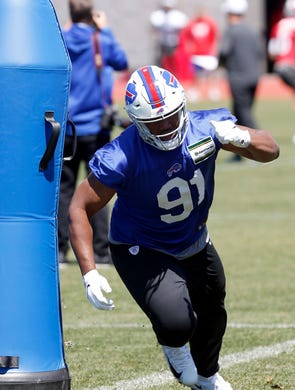
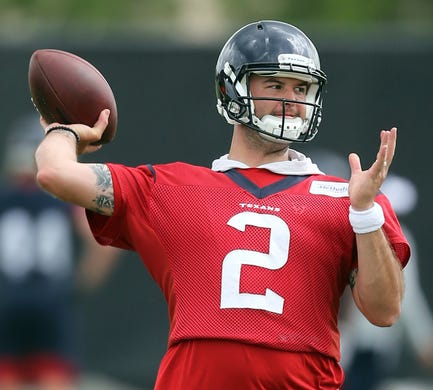
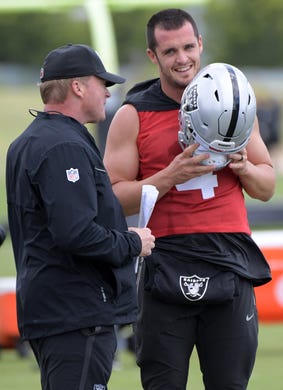
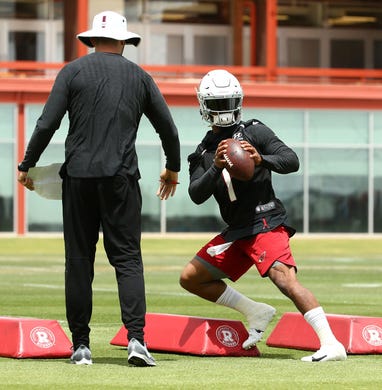
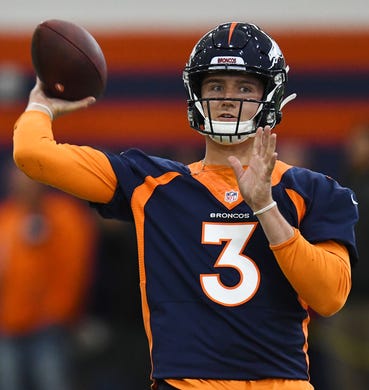

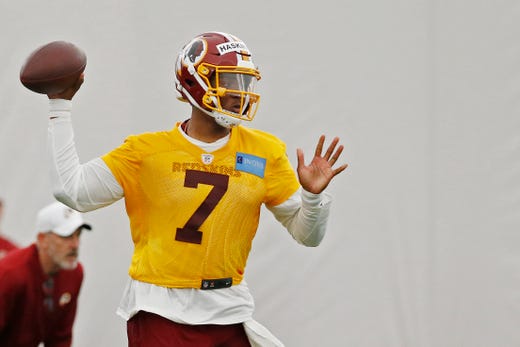
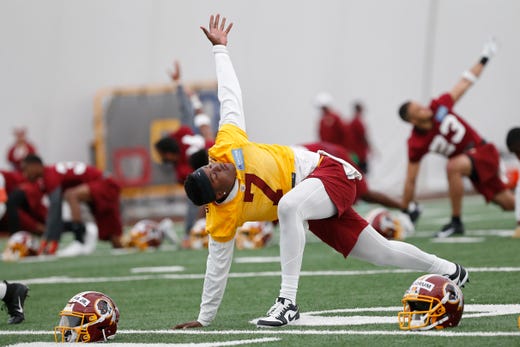


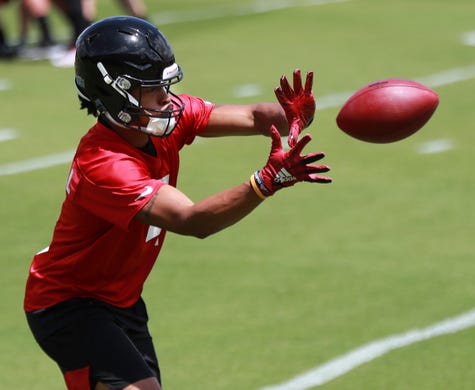






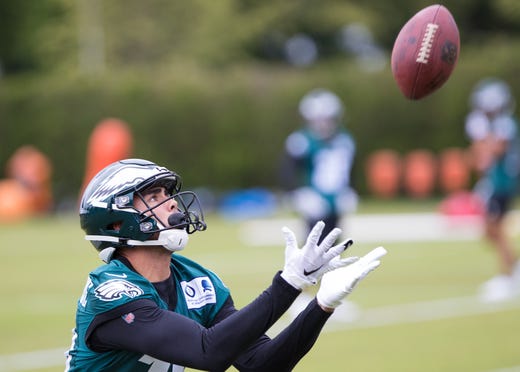


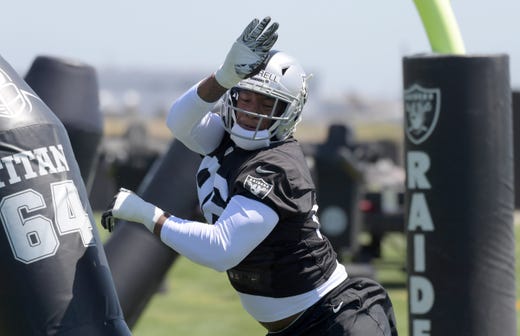

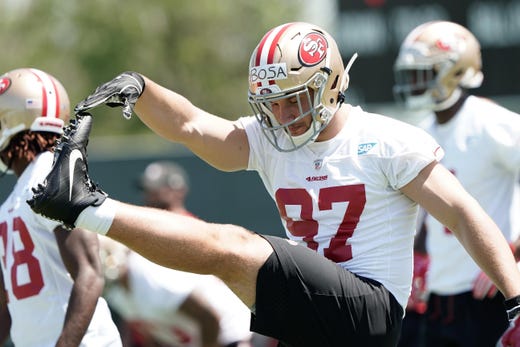



 1 of 43
1 of 43 2 of 43
2 of 43 4 of 43
4 of 43 5 of 43
5 of 43 6 of 43
6 of 43 7 of 43
7 of 43 8 of 43
8 of 43 16 of 43
16 of 43 17 of 43
17 of 43 18 of 43
18 of 43 19 of 43
19 of 43 20 of 43
20 of 43 21 of 43
21 of 43 22 of 43
22 of 43 23 of 43
23 of 43 24 of 43
24 of 43 25 of 43
25 of 43 26 of 43
26 of 43 27 of 43
27 of 43 28 of 43
28 of 43 29 of 43
29 of 43 30 of 43
30 of 43 31 of 43
31 of 43 32 of 43
32 of 43 34 of 43
34 of 43 37 of 43
37 of 43 38 of 43
38 of 43